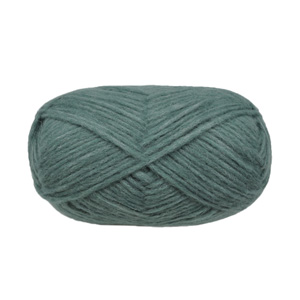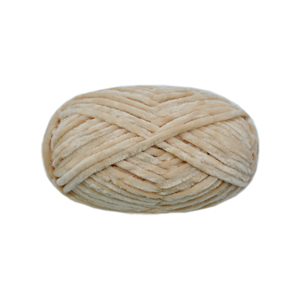What does GRS Certified mean?
 Mar 31,2022
Mar 31,2022

 Evelyn Shi
Evelyn Shi
As issues including global sustainable development and low-carbon economy has continued to draw more and more attention, the rational use of renewable resources is essential. Reuse of materials helps to reduce dependence on non-renewable resources, reduce waste discharge and the environmental load caused by waste disposal, and contribute to the sustainable development of the globe. Our Company. is a leading company with product innovation and the highest environmental protection awareness, we will keep promoting our eco friendly yarn and recycled polyester yarn and do everything we could lessen the industrial impact on the world around them – now and in the future.
Who developed GRS?
The Global Recycled Standard (GRS) was first developed through an open and transparent process led by Textile Exchange. Textile Exchange, a non-profit organization was established in 2002 and has played a powerful role within the textile industry to support the understanding and use of sustainable materials like and proper verification strategies. Textile Exchange has extensive experience in standards development and ownership, however this organization doesn’t engage in any certification activities, but only focus on supporting the quality and adoption of its standards.

What is GRS?
The Global Recycled Standard (GRS) provides independent verification that products claiming to be made from recycled materials are genuine, and that responsible social, environmental and chemical practices have been applied in their manufacture. The standard aims to encourage innovation in and increase the use of recycled materials in product manufacture, to establish more transparency in the supply chain for these certified products, to provide brands with a tool for more accurate labelling of their products, and to provide customers with better information to inform their purchasing decisions. A consumer is more willing to pay for a recycled polyester yarn with GRS logo that ensures the standards.
What does it mean if a product is labelled with GRS?
Businesses whose products like recycled polyester yarn achieve the GRS have shown the highest standards in consideration of ethical, social and environmental standards throughout the supply chain for that product – from the sourcing of raw materials, through processing, manufacturing, packaging, labelling, trading and distribution.
The standard’s rigorous process looks at traceability, adherence to environmental principles, consideration of social requirements, chemical content, and labelling.
If a product is labelled with GRS, buyers can be certain that:
- It contains at least 50% recycled content;
- Raw materials are ethically and responsibly sourced, in line with best environmental practice;
- Environmental impact is minimized throughout the manufacturing process;
- Workers throughout the supply chain are treated fairly and according to internationally labour standards;
- Its supply chain is robustly managed to minimize risk and to avoid unethical or questionable practices, and negative social or environmental impacts down the line;
- 100% traceability throughout the chain of custody as recycled materials pass through the supply chain.

What are the benefits of GRS for buyers?
As global markets have expanded, consumers are faced with more choices than ever before. Is choosing certified recycled polyester yarn better than regular polyester yarn? With a growing awareness and consideration of ethical, social and environmental issues at point of purchase also comes competition among yarn manufacturers who want their products to be seen as the environmentally-friendly choice.
What is difference between RCS and GRS?
The RCS certification requires products with a range from 5% to 100% recycled content, whilst GRS certification requires products between 20% and 100% recycled content, a minimum 50% recycled content is eligible of using the GRS logo.

Who needs to be certified?
Each entity/party who takes legal ownership of the product up until the last B2B transaction needs to be certified, including but not excluding processors, manufacturers, trader, warehousing, supplier and the brand. For recycled polyester yarn certification, from the material producer, trader, recycle yarn spinner or eco-friendly yarn spinner, distributor and brands all need to be certified.
Where can I find certified suppliers?
For all Organic Content Standard (OCS), Recycled Claim Standard (RCS) and Global Recycled Standard (GRS), please visit https://textileexchange.org/integrity/ and look under “Find Certified Companies”.
For Responsible Wool Standard (RWS), please visit https://textileexchange.org/responsible-wool-standard/




 Home
Home What is merino wool and merino wool yarn?
What is merino wool and merino wool yarn?
 You May Also Like
You May Also Like




 Tel
Tel
 Email
Email
 Address
Address









